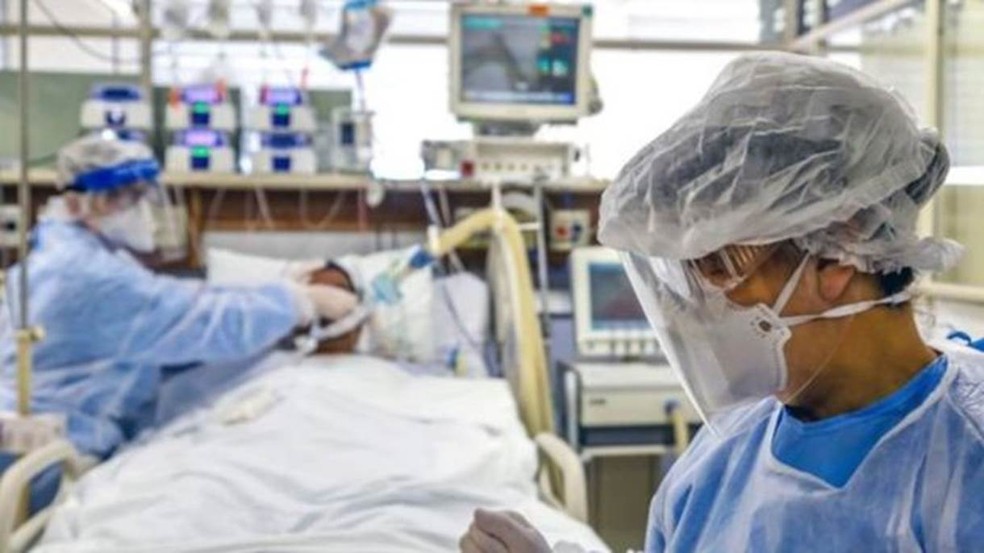RIO DE JANEIRO, BRAZIL – Surge in Covid cases and deaths, shortage of beds, and overcrowded ICUs. The perfect storm has formed, under the final stage of quarantine relaxation, and on Wednesday the Oswaldo Cruz Foundation (Fiocruz), one of the most prestigious public health research centers in the country, declared in a technical note that the SUS (National Health System) in the capital of Rio de Janeiro is collapsing.
With a lower supply of beds and a suppressed demand by patients who were relegated to the sidelines at the start of the pandemic, many people infected with the novel coronavirus or struggling with chronic diseases have been left unattended or without ICU care. As a result, they are dying at home.
“We can now see the system collapsing. And not all (deaths) were from Covid-19, but indirectly from people who have been left unattended,” comments sanitarian Christovam Barcellos, a member of the Covid-19 Monitor and researcher at Fiocruz.

On Wednesday, 172 people were waiting for an ICU bed in the city of Rio and its Metropolitan Region. The ICU bed occupancy rate stands at 90% (552 people hospitalized). In the state, there were 81 more deaths and 3,415 cases. The rolling average of cases of the disease has been growing for 14 days now.
The Fiocruz survey was conducted up to December 1st, and therefore the November data, which are still being entered, may be subject to alterations. The researchers also point out that the primary care units and emergencies are suffering the same breakdown. A picture that increases the risk of death. September and October accounted for 1,100 more deaths than expected for the period.
“This picture points to a collapse of the health system, not only of hospitals, but also of primary care,” assesses the Fiocruz note. And it adds: “With prevention measures and timely care for chronic diseases, it would be possible to prevent the high number of deaths, as well as of patients who were left unattended”.
“The highest number of deaths occurred in April/May, in the peak of the crisis, but in October, the number of deaths out of hospitals increased again. The peak now is lower, but the healthcare system’s capacity has deteriorated. It is a collapse of the system itself. This had been foreseen were we to see a further increase in cases,” comments Barcellos.
“To be hospitalized does not ensure an ICU space. Many are dying of Covid-19 out of intensive care units, despite confirmation of the disease.”
15% of deaths at home
The proportion of deaths that occurred at home in the capital up to December 1st as compared to the same period in 2019 has increased. On Wednesday, deaths at home accounted for 15% of the total, while the average for the same period last year stood at 12%. The proportion observed in November is even higher than that seen at the peak of the pandemic.
“This may evidence inability to diagnose and hospitalize critical cases, both chronic diseases and Covid,” reads an excerpt of the Friocruz note.
Of the total Covid-19 deaths in Rio de Janeiro, only 40% occurred in ICUs. “Probably more than half of the population that came to die by the coronavirus in the city did not even have a chance of intensive care treatment,” the document alerts.
“There are other diseases that didn’t stop in time,” says Gulnar Azevedo, professor of epidemiology at the UERJ (University of Rio de Janeiro) and president of the Brazilian Association of Collective Health (ABRASCO).
The Fiocruz note stresses that the problems tend to escalate with the end-of-year celebrations. The Rio de Janeiro City Hall announced that it was the one opening the highest number of Covid beds in the country.
Committee suggests reversing relaxation
Experts comprising Rio’s scientific committee have suggested that the municipality should implement new social isolation measures to contain the spread of the disease. Among the suggestions are the closure of schools, the interdiction of beaches and the scheduling of business hours – among them, bars and restaurants.
A meeting between Mayor Marcelo Crivella and the acting governor Claudio Castro was scheduled to take place yesterday to outline the details of new measures. Since Governor Wilson Witzel’s removal, communication between the city and the state has improved and part of the flexibilization decisions was disclosed after being agreed upon by both spheres.
“This is a way to prevent citizens from becoming confused. In the past, some measures taken by the state government conflicted with those decided by the city,” said a meeting participant.
One of the concerns raised by the committee was public transportation. And this would have led to the idea of scheduling trade opening hours, thereby preventing crowds in transport modes.
Source: Extra

